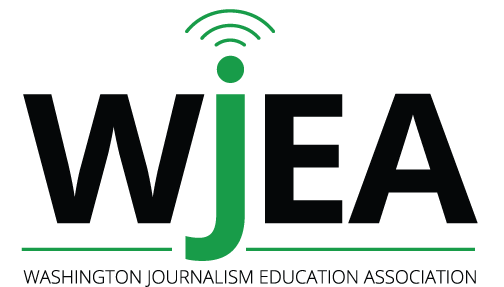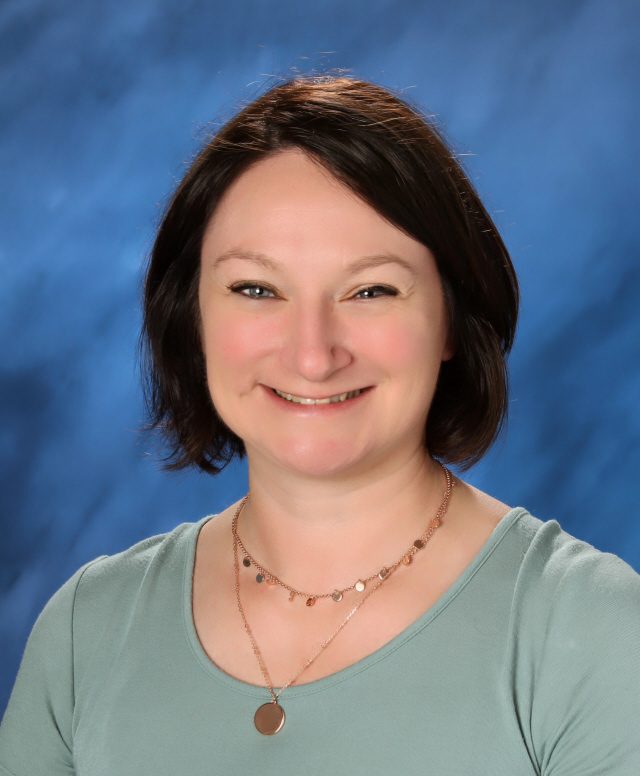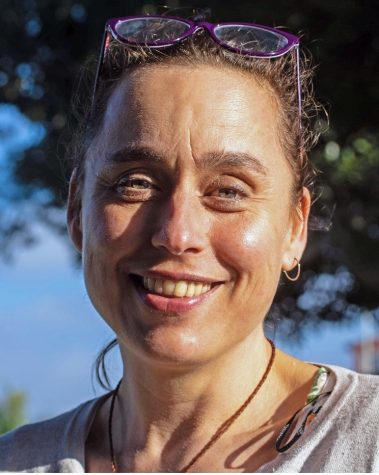Longtime WJEA member Sandra Coyer MJE, elected this February as the Director-at-Large of JEA Board Of Directors, is a force to be reckoned with.
She is a familiar face in WJEA – she was president for two years, vice president, J-camp instructor and judge of the Emerald Awards- on top of her responsibilities of teaching yearbook, newspaper and the Broadcast media channel as director of student media at Puyallup High School. Last year, she won the Special Recognition Broadcast Award Adviser award through JEA.
She is as comfortable leading her pack of new advisers at the WJEA Summer Camp on an adventure at her Alma Mater as she was directing traffic as WJEA president at the 2017 JEA National convention in Seattle, undaunted by the many demands of such a responsibility.
She is the duck who always looks to be gliding, despite all she juggles.
“I know this sounds incredibly silly, but I have impostor syndrome. Like I feel like somebody’s gonna find out I’m not as amazing as they think I am,” said Coyer, attending this year’s WJEA State convention at Arlington High School.
She is driven by an ethos she inherited when she first began teaching student journalists in 2000.
“I took over my program from Sharyn Mehner, who was preceded by Toni Pursley, both past WJEA presidents,” said Coyer. “It was almost as if, and this is my second year of teaching at that point, the expectation going in was that you were going to get involved in some way, shape or form.”
Coyer, who used to teach AP English classes on top of broadcast and the Viking newspaper, started going to WJEA summer camps, working as a floor supervisor first and then joining former WJEA president Vince DeMiero to help run the editorial leadership major in the WJEA, before eventually taking the class over.
She ran for vice president of WJEA then did a stint as the regional director with JEA, where she covered Alaska, Washington, Oregon, Idaho, Montana and Wyoming doing outreach and providing support to advisers in the region.
Over her years in leadership with both JEA and WJEA, Coyer says she has watched membership dwindle. In her new position of Director at Large, Coyer will bring her infectious enthusiasm and support to the national level to focus in part on outreach.
“We need to retain teachers, and we need to recruit journalism teachers. I’m worried and concerned because I’m now looking at the end of my career going, ‘who is going to take this over when I finally have to pass this on to someone?’”
She has the same worry for WJEA. Ensuring there are leaders coming up is essential.
“We’ve been stewarding the ship for however many years, and at some point, we’re going to have to give that ship to someone else, but who?”
Coyer has a gift for getting people involved. She can often be seen hugging familiar faces at every WJEA function or in whatever city the JEA national convention happens to be in, bringing everyone to the same table, onboarding advisers into a sense of community.
Part of that is framing the work that students in all types of media under the same umbrella. Coyer says in her own school she has seen Numbers for yearbook go up, while numbers in journalism are declining.
“It’s all about storytelling,” says Coyer of the work yearbook.. “And so your job is to tell the story of the year, but it’s getting published in a different place, whether you’re getting published in print, publishing the book published online, doing social media.”
She says there is a misconception that yearbook is not journalism, but that it is the same work in understanding how to tell the stories effectively.
“Because while not every school is going to have a newspaper, per se. Not every school is gonna have a broadcast program. They’re more than likely going to have a yearbook and I like to kind of push on the idea that your book is journalism.”
Another important focus in her shift to the National level will be the diversity, equity and inclusion focus for the organization, continuing to build on the tools created by her predecessor, Sergio Yanes who began the JEA commitment to diversity which is available on the JEA website.
“It’s an important conversation to have. it’s an uncomfortable conversation to have. It’s a scary conversation to have. And I think part of what I’d like to do is continue what Sergio had done. There’s a lot of resources available on the JEAwant to continue to build that library of resources and to make it part of the conversations that we’re having,” said Coyer.
At the core of her work is the students, and the power that working in student media provides for kids, especially in an age where local news is dwindling.
“The responsibility to tell the stories really falls on the student media and with great power comes a lot of responsibility. I absolutely love the work that my kids do,” said Coyer. “Student media gives the opportunity for the stories to be told, as adults, we aren’t necessarily in a position to tell the kids stories and that needs to come from the kids themselves. And I think that it’s powerful.”
As she enters the national stage she is working to put it all into perspective, walking in the footsteps of the past leaders she admires.
“I need to also keep in mind for myself, that I’m not them, and that I can only do what I’m capable of doing and that that’s okay. But I want to be that inspiration for other people as well.”




